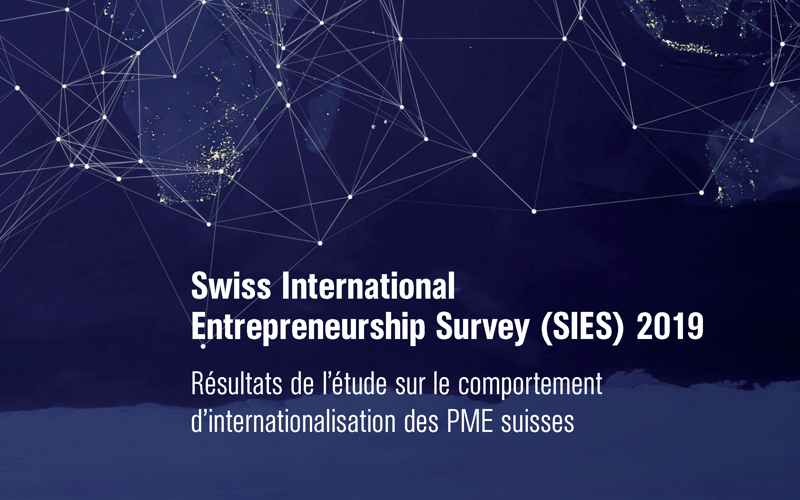24 Oct 2019
This report is based on a comprehensive survey on the internationalization of Swiss SMEs. The study examines the status of internationalizing behavior of Swiss SMEs and identifies current trends.

This study examines the status of internationalizing behavior of Swiss SMEs and identifies current trends. Using the Bisnode database, a multilingual questionnaire (German, French, English) was sent to decision-makers of export active SMEs. Thanks to the great interest in the topic, a large number of companies not only decided against anonymity but also expressed interest in the workshops to be held in autumn/winter 2019.
The study focuses on entrepreneurs with their global vision and insight that at each stage of a company‘s life-cycle, different characteristics of the management team are required. It is, therefore, important to recognize early on which skills are essential for the current situation, to act accordingly and to acquire the missing skills. The entrepreneur or the management team are undisputedly key to its success. The entrepreneur or management must have international experience. This study discusses the well-known influence of entrepreneurial selfconfidence and level of competence to employ an internationally experienced management team for the planned move across the border. The importance of international experience should not be underestimated and has a significant influence, not only on the speed of internationalization but also on its success.
The study highlights the importance of adequate preparation of the internationalization process and a strategy based on the companies‘ own competencies. Using the example of other companies that pursue the path of innovatively positioning themselves in the international value chain, decision-makers see how they can maintain competitive advantage in foreign markets. The results suggest that entrepreneurs and SME managers invest less in tangible assets and more in areas that directly generate competitive advantages. This includes, for example, research and development and employee creativity. The practical examples show the diversity of internationalization modes of SMEs and make it clear for managers that internationalization does not necessarily culminate in the export of market services, but that internationalization can also be achieved with a specific position in the international value chain.

Swiss International Entrepreneurship Survey
The Swiss International Entrepreneurship Survey SIES is a triennial study, conducted by the School of Management Fribourg, on Swiss SMEs’ internationalization efforts. It examines the state of internationalization among Swiss SMEs, in particular the behavior of Swiss SMEs towards the internationalization of their business, customers and growth.